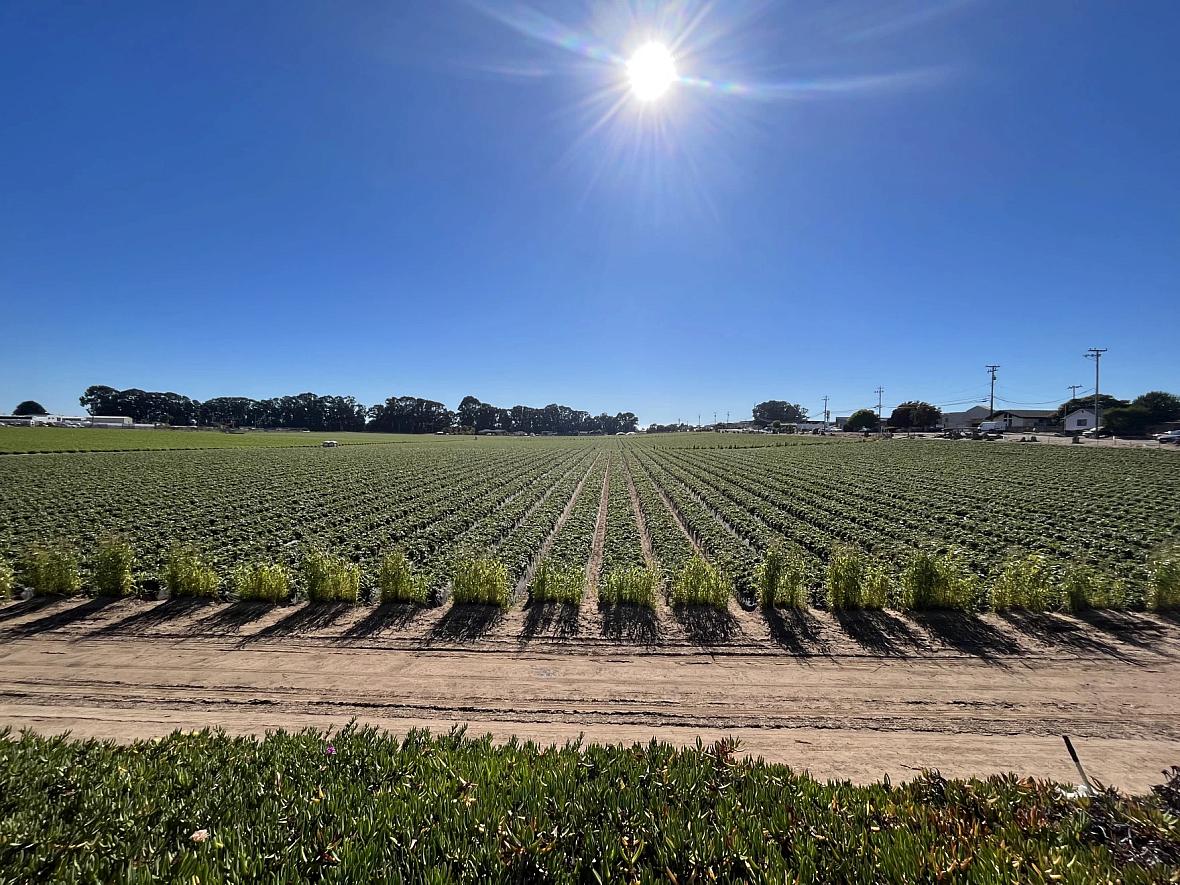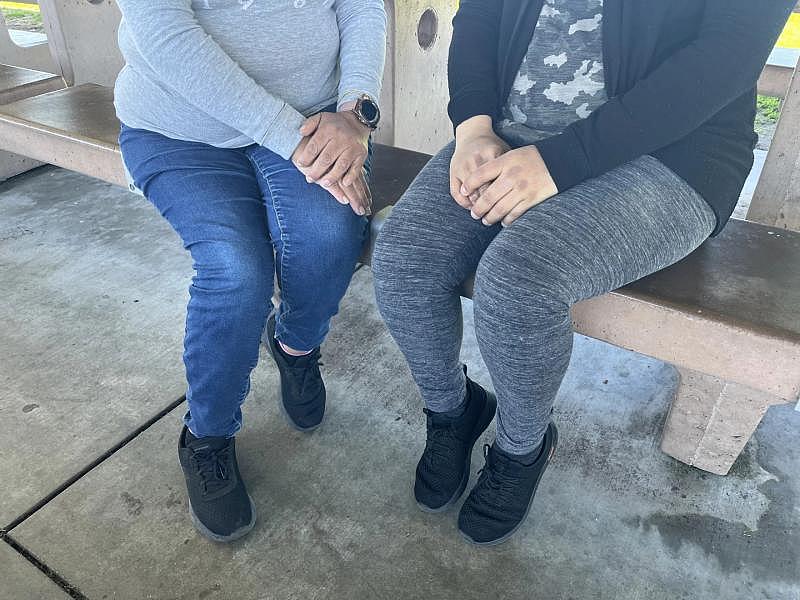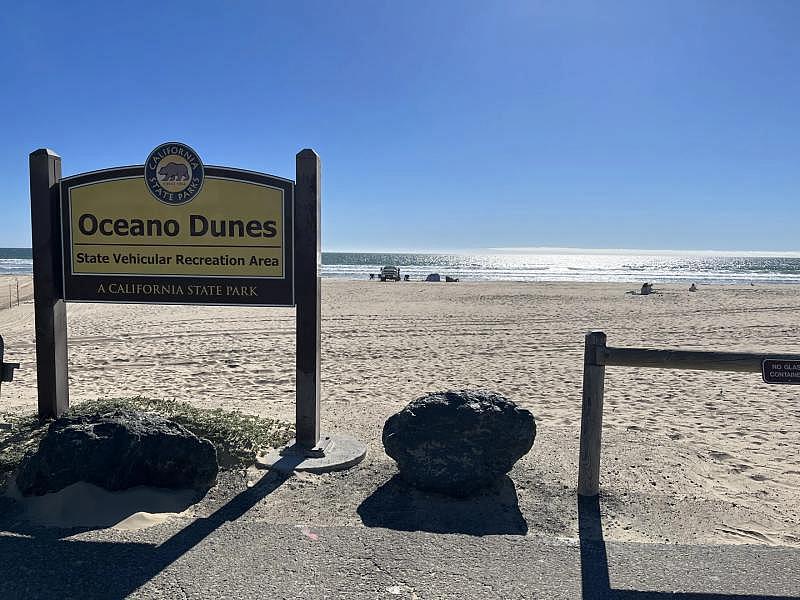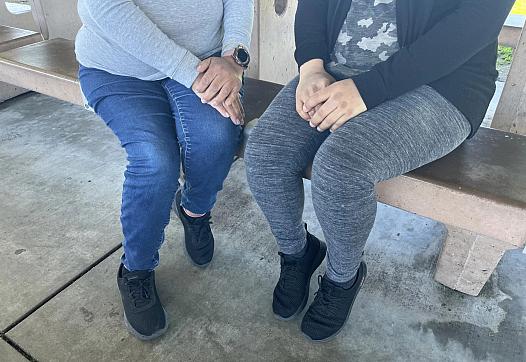Clouded in Crisis: The roadblocks keeping pollutant exposure high and disease prevention low
This story was originally published in KCBX with support from the 2022 California Fellowship.

The Nipomo Mesa is home to many agricultural fields, like this one, that employee outdoor workers.
Rachel Showalter /
Air pollution from blowing dust on the Nipomo Mesa is hitting people of color and low-income folks especially hard.
There’s a strong community of agricultural workers in Oceano and Nipomo. It's an ideal climate for growing fruits and vegetables, and a lot of people find work in the fields.
Soledad, who’s last name we are keeping private because of the sensitivity of the topic, is a local mother and wife. She also picks strawberries on the Mesa and exclusively works outside, breathing in the air.
She said she doesn’t have symptoms of asthma, but she recently developed allergies.
"I work in the fields, and so being in the air has caused more allergies from dust and tree pollen," she said.
Soledad isn’t provided a KN95 or N95 mask at work, so she wears a cloth to cover her face. Still, she said she is exposed to a lot of pollen, dust and chemicals, like pesticides, which she said could be the reason for her allergies. Soledad said a lot of her coworkers feel the same symptoms.
Meghan Field, with SLO County’s Air Pollution Control District, said short term impacts from air pollution can feel a lot like allergies.

“You could have really scratchy itchy eyes, scratchy throat, you could start to get dried out, you start to cough, you could even get headaches,” Field said.
But, according to Field, long-term exposure could lead to worse and chronic health issues.
“It really could cause lung impacts, emphysema — those types of long-term diseases," Field said. "[Long-term exposure to air pollution] can also impact pre-existing conditions so those with asthma could start to see more asthmatic attacks. People with heart and lung issues could have a harder time breathing.”
Soledad said as an agricultural worker, she doesn't really let herself get scared about breathing the air during periods of poor air quality because, even if she has an allergic reaction or feels sick, she still has to work.
"Whether if affects us or not, we have to work," she said.
Soledad doesn’t have a primary care doctor, and she’s undocumented which means she isn’t able to get covered by health insurance.
There are federally qualified health centers that accept everyone regardless of insurance status, like the Community Health Center in Nipomo. But still, that takes time to navigate.
Soledad said there isn't much she can do about her allergy symptoms right now.
Soledad said her employer does tell her and her coworkers to go home if they aren’t feeling well. But, according to Soledad, nobody speaks up when they do feel sick, because work is a necessity.
"They just say that if you feel bad, then you should go home. But really maybe there haven't been many complaints about the chemicals being harmful, because people chose work over their health," she said.
“I feel like it’s often too that certain health things just kind of don’t even feel like a priority,” said former CAUSE Policy Advocate Rebeca Garcia.

CAUSE is a Central Coast organization that helps working-class and immigrant communities locally. At the time of this reporting, Garcia worked with the group. She said working class folks often need to prioritize things other than health in order to make ends meet.
“Some of the same issues that working class people are going through are kind of on the low," Garcia said. "[Some people say], ‘Ok, I need to get food on the table. I need to take care of my kids.’ That list goes on. Whereas someone else might [say], ‘I can’t breathe. I need to go take care of this.’”
Garcia said she experienced this in her own community, growing up in Grover Beach and Oceano. She’s familiar with the health issues people are facing because she’s seen them in her family and friends.
Garcia said, even if someone has citizenship or a work visa, there are a number of other reasons it’s common for people to ignore a medical issue until it gets really bad.
“It’s not because we’re procrastinating," Garcia said. "It’s because you can’t afford it, because you know it’s gonna take so much work, because you know that you’re gonna get redirected a million times or there’s gonna be a waiting list. That list of reasons is so big that it just makes it impossible to start.”
Many people across the state are having a hard time navigating the healthcare system right now, often waiting months to receive care.
In the third article in this series, we’ll explore the medical system. We’ll look into the ways an ongoing physician shortage in California is making access to healthcare even more challenging for people like Soledad — the ways the system is coming up short and some possible solutions.

